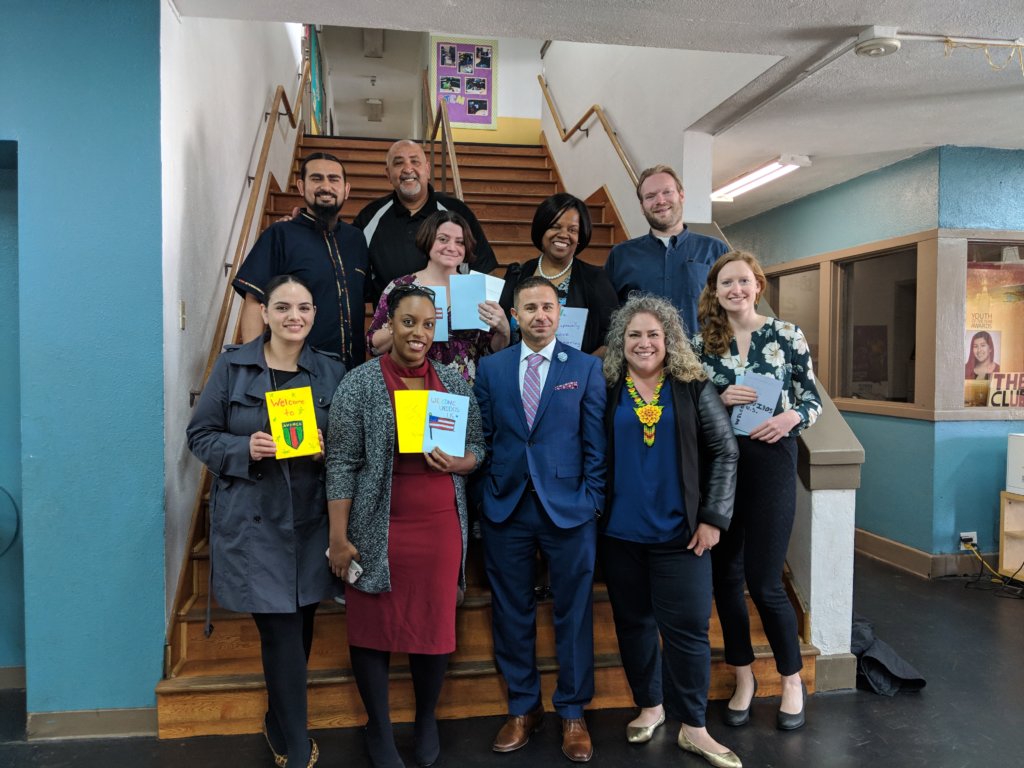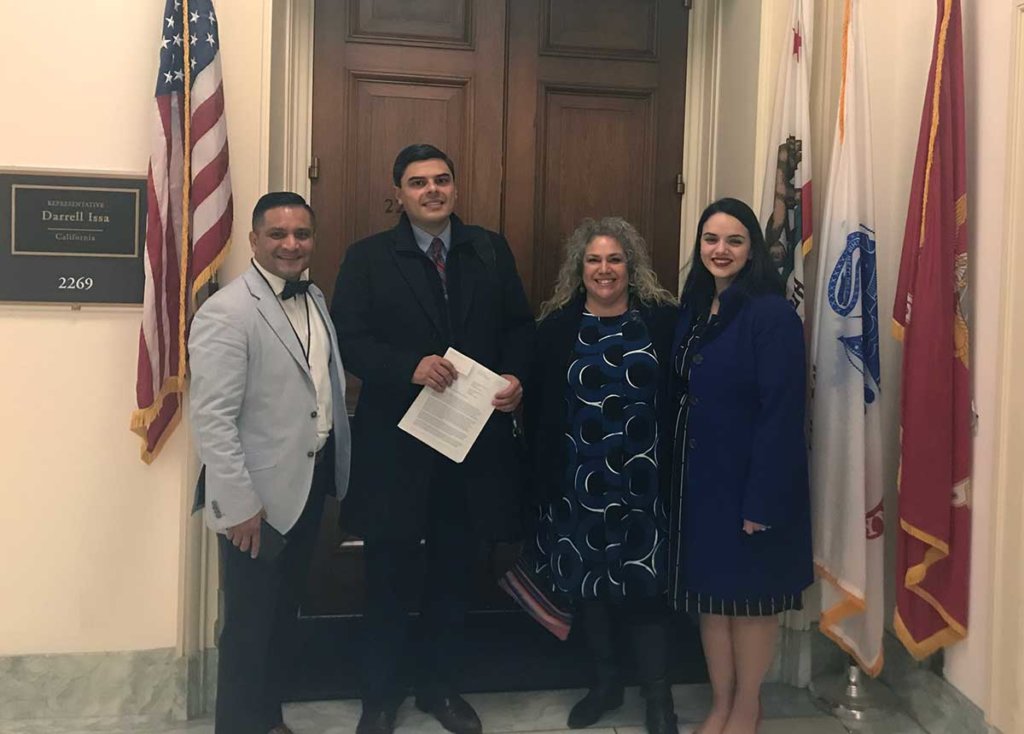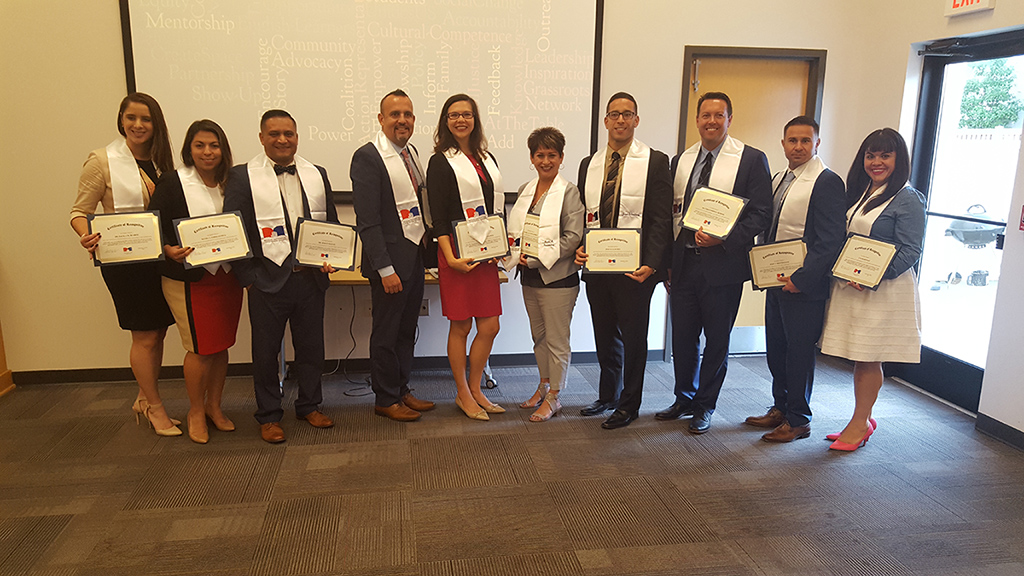Advice from Education Leaders: Embracing Vulnerability is the Ultimate Strength
They say even the boldest and brightest of leaders get the imposter syndrome blues, and according to Marisol Rerucha, an alumnus of UnidosUS’ National Institute for Latino School Leaders (NILSL) program, admitting that is a virtue.
“Embracing vulnerability is to me the ultimate strength,” says Rerucha, now a career technical education specialist at the San Diego County Office of Education.“It is a tremendously courageous act that allows your team to see you as a human being who is committed to growth by understanding your strengths, your weaknesses, and basically by acknowledging your own humanity.”
Her comment came last week during a one-hour UnidosUS leadership development webinar she hosted alongside fellow NILSL alumnus John Monteleone, an academic superintendent of the Citizens Academy charter schoolin Akron, Ohio.
The NILSL program is a one-to-two-year fellowship designed to bridge gaps between education policies and the practitioners themselves by taking teachers, principals, superintendents, and other advocates of education to Washington to learn how policy works and to lobby the government for improvements in education. Upon completion, UnidosUS requests that alumni share what they learned in the program and in their subsequent fieldwork with other education professionals.
In this webinar, UnidosUS asked the NILSL alumni to consider the following questions:
- How do leaders exhibit authenticity or create authentic systems?
- What are the fears that leaders have that keep them from being vulnerable with their teams?
- What part does self-awareness play in growth leadership?
- Why is it important to create a space in the workplace for harm to be acknowledged and healed?
“For me, showing up authentically means showing up as who I am regardless of what role I’m in,” says Rerucha, noting that vulnerability goes hand-in-hand with today’s push for a more innovative society. So how do you implement this in the workplace?
She says it’s important to set kind, open, and respectful behavioral expectations for every member of the team, then hold regular check-ins with guided sharing in which leaders model the vulnerability they hope to see in the group.
This is part of what her colleague Monteleone refers to as transformational leadership.
“I think it’s very important for us not to get caught up in titles,” says Monteleone. “When people ask me what I do, I often say that I work for 300 teachers and 1,400 scholars.”
In fact, he says he learned a lot from the first time he showed vulnerability in leadership. At 31, he was catapulted into serving as a high ranking school administrator. Realizing that he was still new and inexperienced, he openly admitted he didn’t have all the answers, and was pleasantly surprised to learn how receptive staff were to finding those answers together and learning from each other in the process. He notes that interactive leadership is especially important to model in school settings.
“Learning is messy,” he says, “it’s important for us to recognize that the consequence of failing is getting to try again, so I think that builds a growth mindset and provides a space where we recognize that achievement is not always going to be the first result, but it’s more important the effort that we put forth.”
Both NILSL alumni say creating a transformative growth culture means playing to each team members’ strengths while also creating room for improving weaknesses, rather than being quick to cycle through employees when things don’t go just so.
Rerucha also says team building should include opportunities to dialogue before a workplace gets toxic and to create camaraderie and trust with group bonding activities such as off-site meetings in fun locations or volunteering together in the community.
“It’s really, really important to create a system or a strategy to address harm in the workplace so that healing can happen. Some of the stuff we come in with- our own biases, our perspectives – they’re based on our own trauma from previous experience. Where else are we doing that?” she asks. “We’re not necessarily taught to do that in our families.”
In fact, this kind of leadership training is a rarity in the academic and professional world as well.
“It’s not every day that we hear leadership and vulnerability and leadership and healing in the same sentence,” says UnidosUS Education Outreach Manager Cayla Conway, “But it’s so important that we do hear those things and so important to be reminded of the qualities and the ways we can incorporate these qualities into our organizations, into our schools and really make them a part of the culture.”
Want to learn more about transformational leadership? Click here to do on the link to follow the whole webinar.





